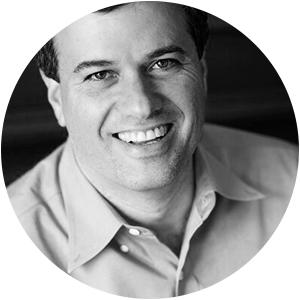Dear Sean,
After five years at my firm, where I took a job out of design school, I’m starting a new job next week. I’ve learned so much at my current job, but I’ve heard that every firm does things differently. I’m excited about this opportunity, but also nervous. How do I put my best foot forward at this firm?
Changing Lanes
Dear Changing Lanes,
For the purposes of this column, let us take one thing off the table—starting your own firm. In today’s entrepreneur-driven world, we often overlook those who do not wish to have the burden (and reward) of ownership, but instead just want to focus on their work and getting better at their art amid a team of talented professionals. I presume this is you, so let’s focus on three critical elements necessary to be a great employee: listening with a voice; appreciating the story being told; and investing in the integrity of the firm.
You already have skills and experience, thanks to your years with your current firm. Your new employer is investing in these skills and relying on your ability to implement them on their team. That said, having transferable skills is never enough. You do not know how your new firm will ask you to use them, and you will want to grow your skill set regardless. So you have to learn the ethos of your new firm and what matters to them: Are they about getting it done at all costs, or doing it right the first time? Do you have to communicate your every move, or will there be autonomy from the get-go? That said, you are, by definition, fresh eyes, so know that your unique perspective and approach to problem solving matters. Once you understand the rules of their game, you can bend them with your voice.
As you are no longer simply seeking an opportunity to learn, you have a responsibility to see the entire picture. It is not enough to just do the task assigned. You have to know why it is happening at a given moment and anticipate the effects of a different way of executing the same task. You are no longer the student receiving an assignment—you are there to add value, and that means you have to stretch. The best firms have idiosyncratic (iconic) processes that they rely on religiously. This is their Kool-Aid, and you have to drink it. You also need to know that you can help them change flavors if it would be a better version of what they seek to be for their employees and clients. “Why don’t we do it this way?” only matters if you can say, “I completely understand why we do it this way now, but …”
Of course, you cannot have integrity for someone else. Character comes from within. Yet you are now being paid to hold the center, to appreciate what matters to the company and act accordingly. Just because you do not aspire to own your own firm does not mean that you should act as if the firm is not yours. Merely doing your job is a great way to be marginalized when you are asked to own your role as larger than yourself and your day-to-day tasks.
All of which leads to my final thought. When you started at your current firm, you were likely given responsibility or authority for a task, but not both. At your new firm, you must know that you will be here again. They do not know you and will not release you to act on your own without first confirming you are able to do so as they themselves would (i.e., with full understanding of the firm’s metrics of success). Your mission is to prove yourself worthy of having both responsibility and authority. This will be the ultimate value for you, as you will then own the power to create a world that will serve all involved—you, your firm and most of all, the client. As you move forward into this new chapter, know it is up to you to leverage yourself, to create your own microcosm that will make you invaluable. Listen first, then own your voice. Good luck.
____________
 Sean Low is the go-to business coach for interior designers. His clients have included Nate Berkus, Sawyer Berson, Vicente Wolf, Barry Dixon, Kevin Isbell and McGrath II. Low earned his law degree from the University of Pennsylvania, and as founder-president of The Business of Being Creative, he has long consulted for design businesses. In his Business Advice column for BOH, he answers designers’ most pressing questions. Have a dilemma? Send us an email—and don’t worry, we'll keep your details anonymous.
Sean Low is the go-to business coach for interior designers. His clients have included Nate Berkus, Sawyer Berson, Vicente Wolf, Barry Dixon, Kevin Isbell and McGrath II. Low earned his law degree from the University of Pennsylvania, and as founder-president of The Business of Being Creative, he has long consulted for design businesses. In his Business Advice column for BOH, he answers designers’ most pressing questions. Have a dilemma? Send us an email—and don’t worry, we'll keep your details anonymous.
Homepage photo: Shutterstock.com




























